Sharing your food with your cat is great, but can cats eat eggplant?
No, cats should never eat eggplant as it is risky and potentially lethal.
Eggplant is a member of the nightshade family along with tomatoes and potatoes, two other foods that cats shouldn’t have.
Eggplant leaves and stems are especially dangerous, but so are the seeds as they contain cyanogenic glycosides, which can cause cyanide poisoning.
Cats should not eat eggplants ever.
If your cat accidentally eats a piece get in touch with your veterinarian as soon as possible as time is of the essence when it comes to feline eggplant toxicity.
Your vet can flush your pet’s stomach and then treat your cat so that the event is not fatal.
Contents
How Is Eggplant Toxic To Cats?
Eggplant is a taxonomic member of the same family (nightshade family) as tomatoes, so it contains a fair amount of solanine.
Raw potatoes and the green parts of the plants contain solanine too (a glycoalkaloid poison), and they’re in the nightshade family, as well, so they are also not to be fed to cats.
While green tomatoes are toxic to cats mostly due to their tomatine content, with eggplants, things are a little different.

Actually, most of the green parts of the eggplant plant are toxic to cats, so you should never let your cat nibble on them.
The seeds are also quite dangerous since they contain cyanogenic glycosides, which can lead to cyanide poisoning.
While some might argue that the vegetable is safer than the rest of the green parts, even when fed raw, it still presents a significant risk to your cat’s health.
Symptoms Of Eggplant Toxicity
Eggplant ingestion can cause a variety of health complications in cats, such as the following:
- Drooling
- Lethargy
- Severe digestive distress
- Changes in your cat’s behaviour (withdrawal and aggression)
Is Eggplant Safe For Cats In Some Situations?
Cooked eggplant is a little safer but still not safe enough to feed to your cat.
In fact, depending on the cooking method and whether or not you have removed the skin and the seeds (which is practically impossible), cooked eggplant could even be more dangerous than raw eggplant.
Eggplant, along with garlic, is the main ingredient in Baba Ganoush and other similar oriental foods, but the seeds are almost never taken out during cooking.
If you’ve ever cooked with eggplant before, you probably know that a very small one can contain hundreds of seeds, and since they can lead to cyanide poisoning, it’s better to refrain from feeding this any to your cat at all – whether cooked or not.
What To Do If Your Cat Has Eaten Eggplant
The first and most important thing to do if this has happened is to reach out to your veterinarian as soon as possible.
They will be able to advise you on the right course of action depending on your cat’s size, age, and health conditions, as well as the amount of eggplant that he or she has had.
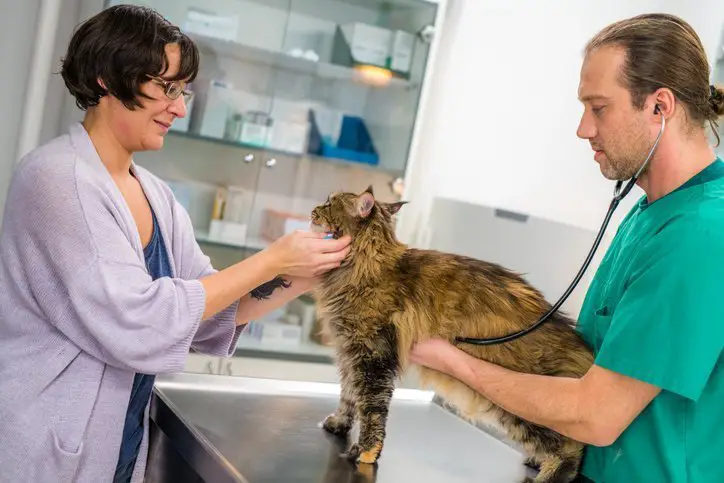
In most cases, it’s best to take your cat to the vet right away without waiting to see whether intoxication signs appear or not.
Some cat owners use hydrogen peroxide to induce vomiting in their pets, however cats rarely react well to being forced to drink something.
If your cat is calm enough to put up with the procedure, a very small amount of hydrogen peroxide could be safe and also capable of inducing vomiting.
However, ask your vet if you are allowed to administer hydrogen peroxide to your pet before you leave for the veterinary hospital.
What Other Vegetables Are PoisonousTo Cats?
Most of the foods that we use for seasoning are dangerous to cats, such as shallots, onions, garlic, and even scallions.
All of these can lead to severe anaemia.
As previously mentioned, potatoes, tomatoes, as well as eggplants should never be a part of your cat’s diet.
You should try to limit your pet’s access to them if you’ve noticed that he or she has a particular interest in these vegetables.
Also Read:
Can Cats Eat Kidney Beans?
Can Cats Eat Quorn?
Can Cats Eat Prawns?
Conclusion
Eggplants are very dangerous to cats.
The leaves, the stem, as well as the vegetable per se, are all risky and can cause poisoning.
Even if they do contain fibre which your cat may need to help with chronic constipation, there are other, far safer fruits and vegetables that you can opt for.
Steamed carrots, pumpkin, steamed green beans and even melon can all safely be given to cats as treats (up to 5-10% of their diet).
As an Amazon Associate I may earn a small fee from qualifying purchases at no extra cost to you. This helps us run the site, so thanks for your support!

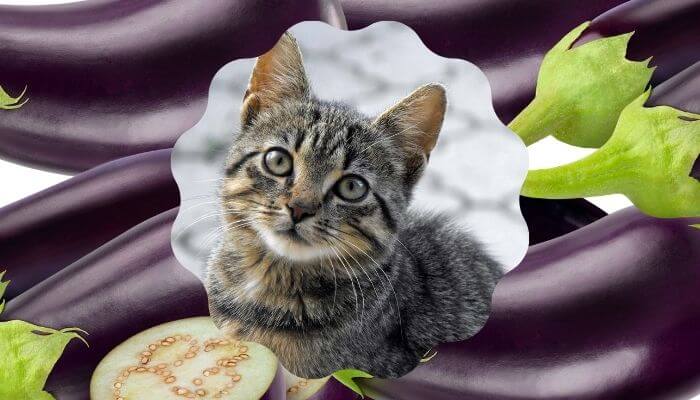
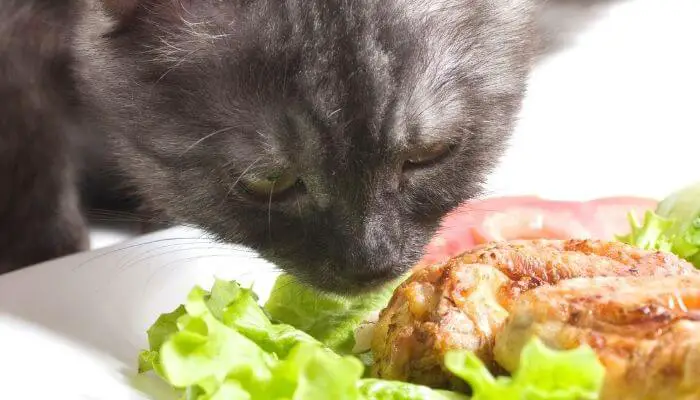
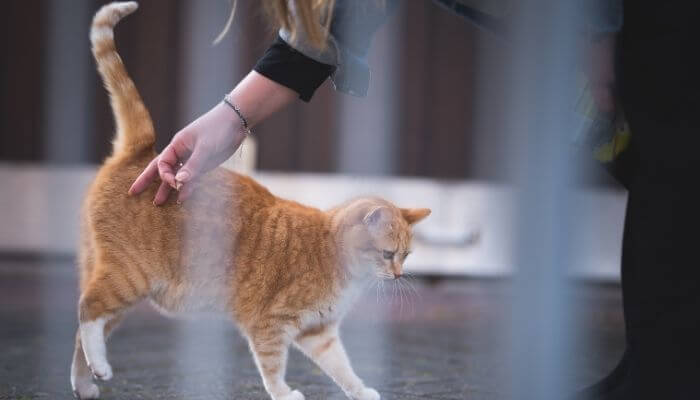
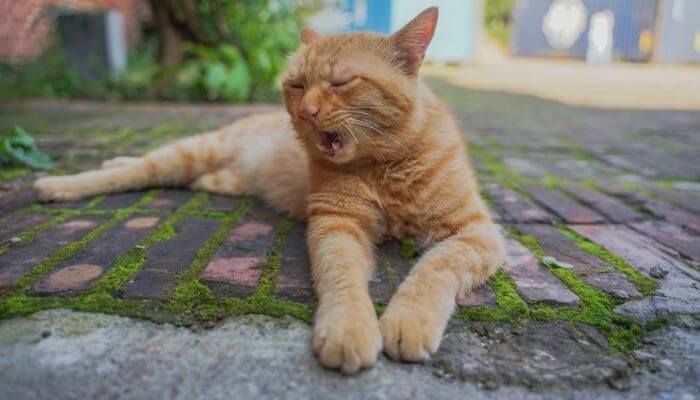
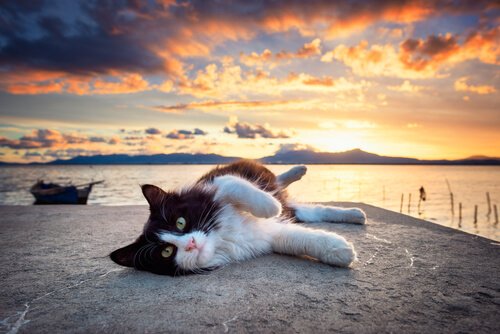
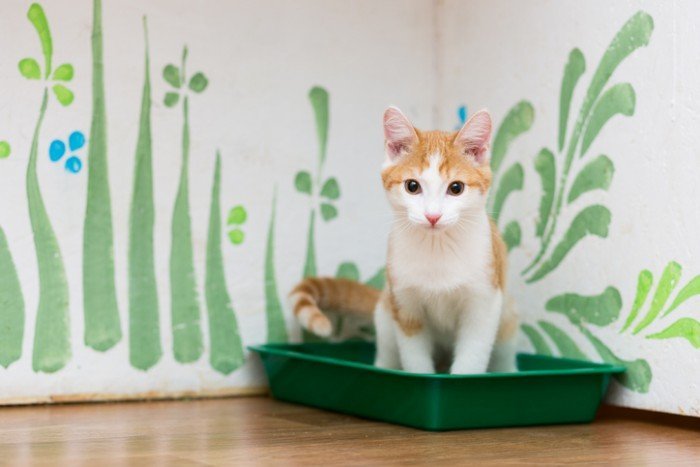

Leave a Comment